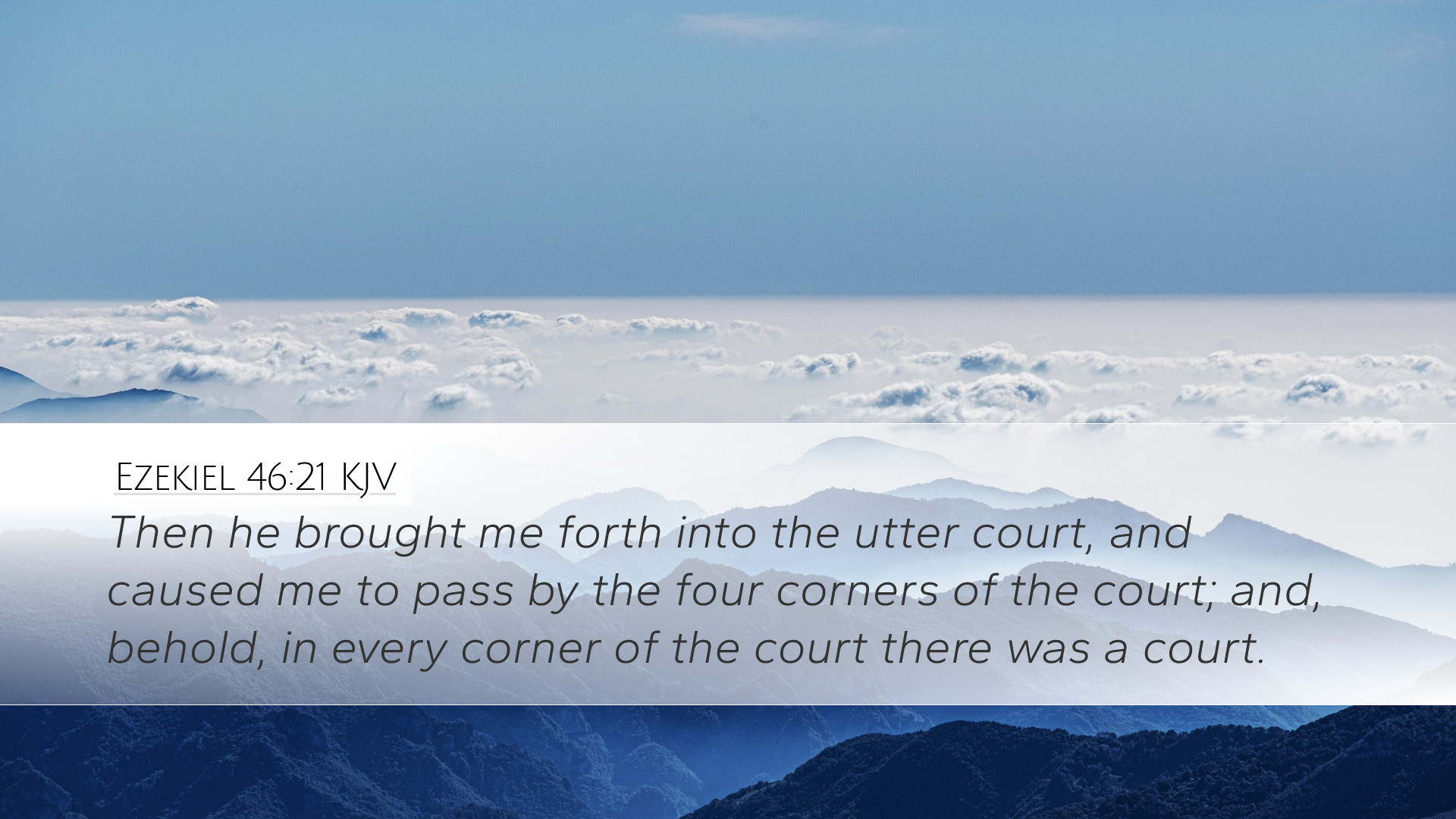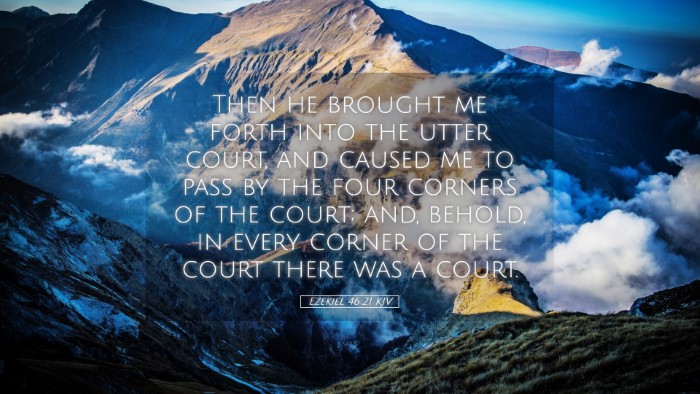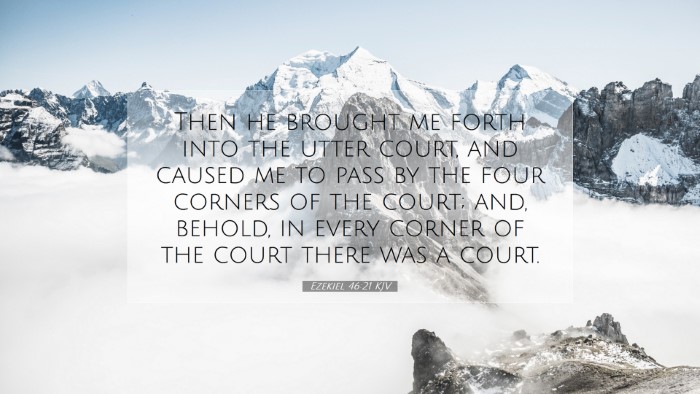Ezekiel 46:21 - A Commentary
"And he brought me into the inner court: and, behold, at the door of the temple of the LORD, between the porch and the altar, were about five and twenty men, with their backs toward the temple of the LORD, and their faces toward the east; and they worshipped the sun toward the east."
Introduction
Ezekiel 46:21 serves as a poignant reminder of the spiritual condition of Israel during the time of the Prophet Ezekiel. This passage highlights a profound expression of idolatry that strained the relationship between God and His people. As we explore insights from public domain commentaries, we will provide context, theological implications, and practical applications of this verse for contemporary readers.
Contextual Analysis
The Book of Ezekiel contains visions, prophecies, and instructions regarding the future restoration of Israel. In this verse, Ezekiel portrays a temple setting indicative of worship practices at that time. The reference to "the inner court" and "the porch and the altar" illustrates the sacred spaces within the temple complex, which were designed for genuine worship.
Matthew Henry emphasizes that this part of Ezekiel's vision elucidates the necessity of righteous worship, contrasting it with the abominable practices prevalent among the people of Judah. His reflections highlight how worship, if misdirected, becomes idolatry, as seen in the actions of the 25 men.
Exegesis of Key Themes
1. Idolatry in Worship
Albert Barnes notes that the men's actions signify a complete turning away from the true worship of Yahweh. They face east, towards the rising sun, indicating their engagement in sun worship—an act forbidden in the law and one that symbolizes their spiritual blindness.
This shift in focus signifies not just a physical relocation of worship but a deep-seated heart issue concerning allegiance and fidelity towards God. The act of worshipping the sun, as poignantly stated by Adam Clarke, underscores a grave departure from the covenant relationship established with God.
2. The Role of Prophets
Ezekiel as a prophet plays a crucial role in calling attention to the transgressions of the people. Matthew Henry observes that prophets were raised to expose idolatry and guide the people back to authentic worship. In a similar vein, pastors today hold a responsibility to confront contemporary forms of idolatry within their congregations.
3. Consequences of Spiritual Blindness
The spiritual blindness of the men worshipping the sun illustrates a broader theme of the people of Israel. Clarke remarks that their disregard for God led to devastating consequences—both individually and collectively. When spiritual leaders fail to recognize and correct deviation from true worship, the entire community suffers.
Theological Implications
This verse compels theologians and scholars to reflect on the nature of worship itself. Worship must be grounded in truth and directed towards God alone. The sin of idolatry serves as a reminder of the importance of theological precision and orthodoxy in worship practices.
- God's Holiness: Worship is predicated upon acknowledging God's holiness. The men’s actions in Ezekiel 46:21 violate this principle.
- The Need for Repentance: This passage calls for a moment of introspection: where might our contemporary worship practices stray from the essence of honoring God?
- Judgment vs. Restoration: While judgment is pronounced on idolatry, the overarching narrative of Ezekiel speaks of restoration and hope for Israel.
Practical Applications
For pastors and church leaders, Ezekiel 46:21 presents an opportunity for evaluating worship practices within their congregations. Pastors are challenged to ensure that worship is not merely a cultural exercise but a heartfelt response to the divine presence of God.
- Evaluate Worship Practices: Churches should consistently examine whether their worship forms genuinely reflect reverence for God or if they have inadvertently adopted cultural idols.
- Teach Faithful Theology: Sound biblical teaching is necessary to prevent the infiltration of idolatry. Regular theological education can help congregations remain anchored in truth.
- Encourage Authentic Worship: Foster environments where congregants feel compelled to worship in spirit and in truth, as Jesus underscores in John 4:24.
Conclusion
Ezekiel 46:21 serves as a compelling narrative for understanding the grave implications of idolatry and the necessity for fidelity in worship. As we reflect on insights from esteemed commentaries, it becomes clear that the call to authentic worship remains a pressing concern for all believers today. May this verse challenge and inspire pastors, students, theologians, and scholars alike to guard against the allure of idolatry and to turn their hearts towards the one true God.


